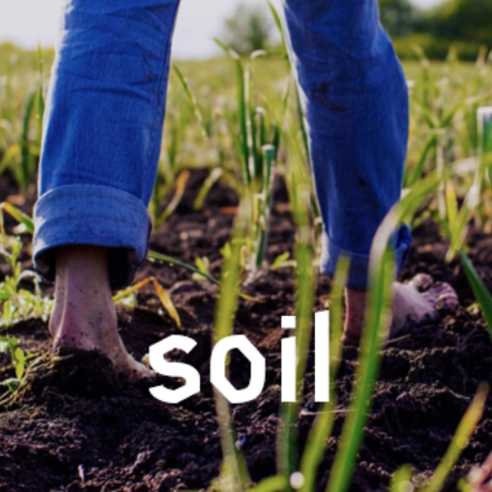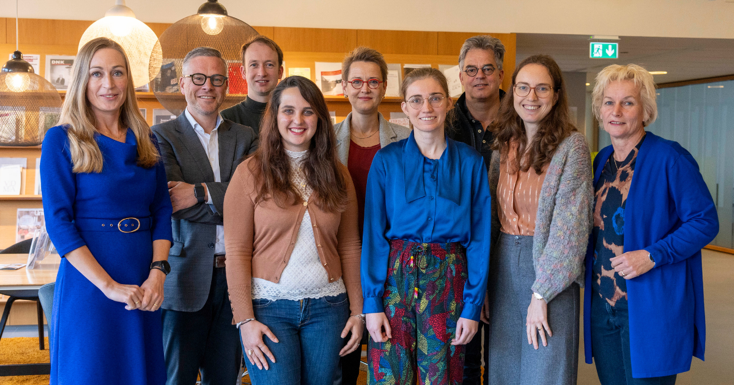About the project
The project, that started in September 2023, focuses on views on and dealing with agricultural land of farmers and of church congregations that lease land. In addition, views on earth, ground and soil as embodied in sermons and prayers in church communities come into focus. Together with the people involved (e.g. farmers, pastors, church members), the project wants to develop a responsible, context-sensitive theological vision of soil in the Netherlands that serves Christians and Christian communities in their faithful relationship with the earth.
Project summary
Climate and ecological changes confront human beings with urgent and complex questions regarding their view on and dealing with the earth. These questions touch the heart of human existence, and for Christians also touch their faith: how to account for a theologically responsible relationship of human beings with the earth? Theology has various good reasons to fundamentally rethink the relation of humans and the earth through a focus on ground, soil and land. That 60-70% of the European soils are currently unhealthy, gives theological reflection its urgency.
This five-year project employs such focus in exploring the question “What are qualities of a responsible, context-sensitive embodied theological view on ground in the Netherlands, in light of 21st-century climate and ecological problems?” Considering the relatively large agricultural area in the Netherlands, the focus on ground firstly brings up on the agenda actual views on and dealings with agricultural land by farmers and by Christian congregations owning farmland. Secondly, the embodied views on earth, ground, soil and land in practices of prayer and preaching by professional theologians and church members in Christian congregations will be studied, in connection with updated understandings of relevant theological and philosophical notions, such as creation, nature, earth, salvation, and eschaton. In several work packages, the project thus addresses the transforming potential of Christian identity and how the good life is mediated in this 21st-century context.
This intra- and interdisciplinary project brings theological and philosophical, rural-sociological and agricultural disciplines together, following a methodology based on a paradigm that accounts for different metatheoretical decisions, and combines literature research, quantitative and collaborative qualitative research. By increasing awareness of the theological problem and developing context-sensitive theological models and practices, the project guide Christians and the church in its diversity towards a responsible theological view on ground that (re)connects Christian faith to the earth in all its materiality and critically-constructively relates to behavioural alternatives currently offered in sustainable and green discourses.
Report 'Between sustainable thinking and sustainable doing'
PThU and the Social and Cultural Planning Office conducted a large-scale quantitative study in 2023 on how citizens in the Netherlands view the sustainability task and how it should be realised. We also investigated what people are willing to sacrifice to realise this sustainability task. Special attention was paid to Christians and the way faith plays a role in their perspectives and willingness to sacrifice.
Soil: into the country!
Throughout the project, we will go "Into the country". With a public programme under the banner De boer op!, we will share our scientifically gathered knowledge at festivals, at (our own) events and in creative sessions. Think "Bible reading on the farm" and roundtable discussions with local and regional food producers. In this way, we want to equip farmers, pastors, tenants and landlords, faith communities and interested parties with appropriate theology that can further assist in a faithful engagement with the land.
We cannot do this alone! Financial support, as well as tips, great examples and suggestions are most welcome. See how you can contribute.

 The Soil research team consists of (from left to right): Arnold Huijgen, Erik Oevermans, Marileen Steyn, Mirella Klomp, Mariëlle van Es, Thijs Tromp, Joyce Rondaij, Ciska Stark and Eveline de Smalen (not in the picture).
The Soil research team consists of (from left to right): Arnold Huijgen, Erik Oevermans, Marileen Steyn, Mirella Klomp, Mariëlle van Es, Thijs Tromp, Joyce Rondaij, Ciska Stark and Eveline de Smalen (not in the picture).

